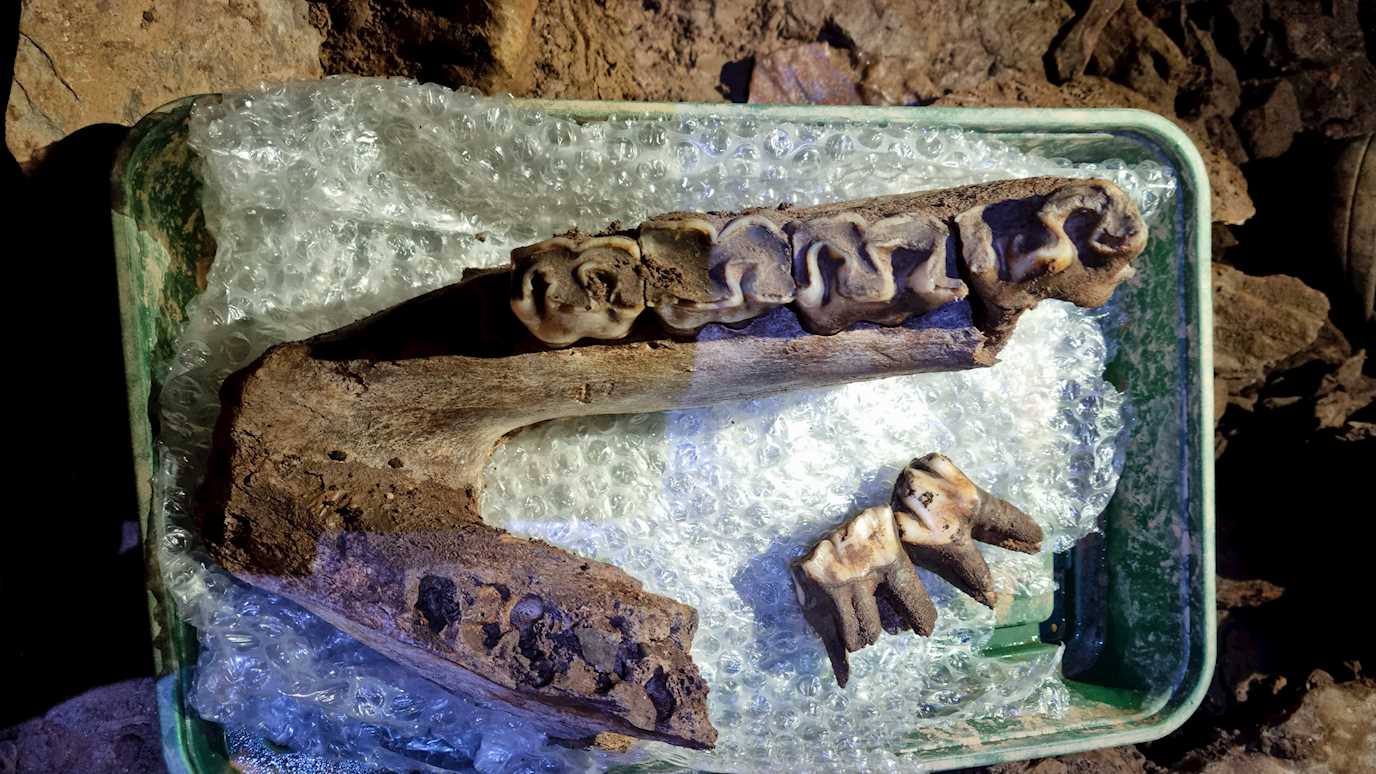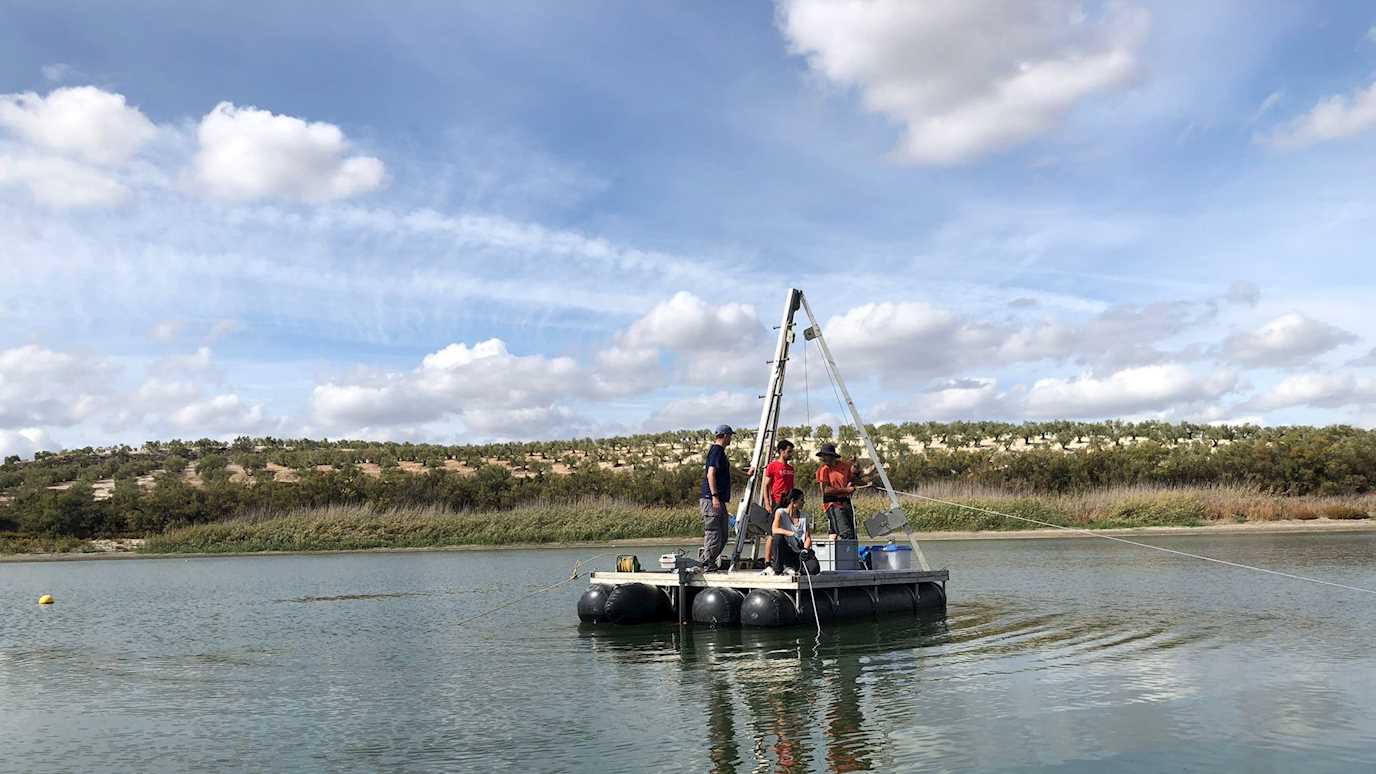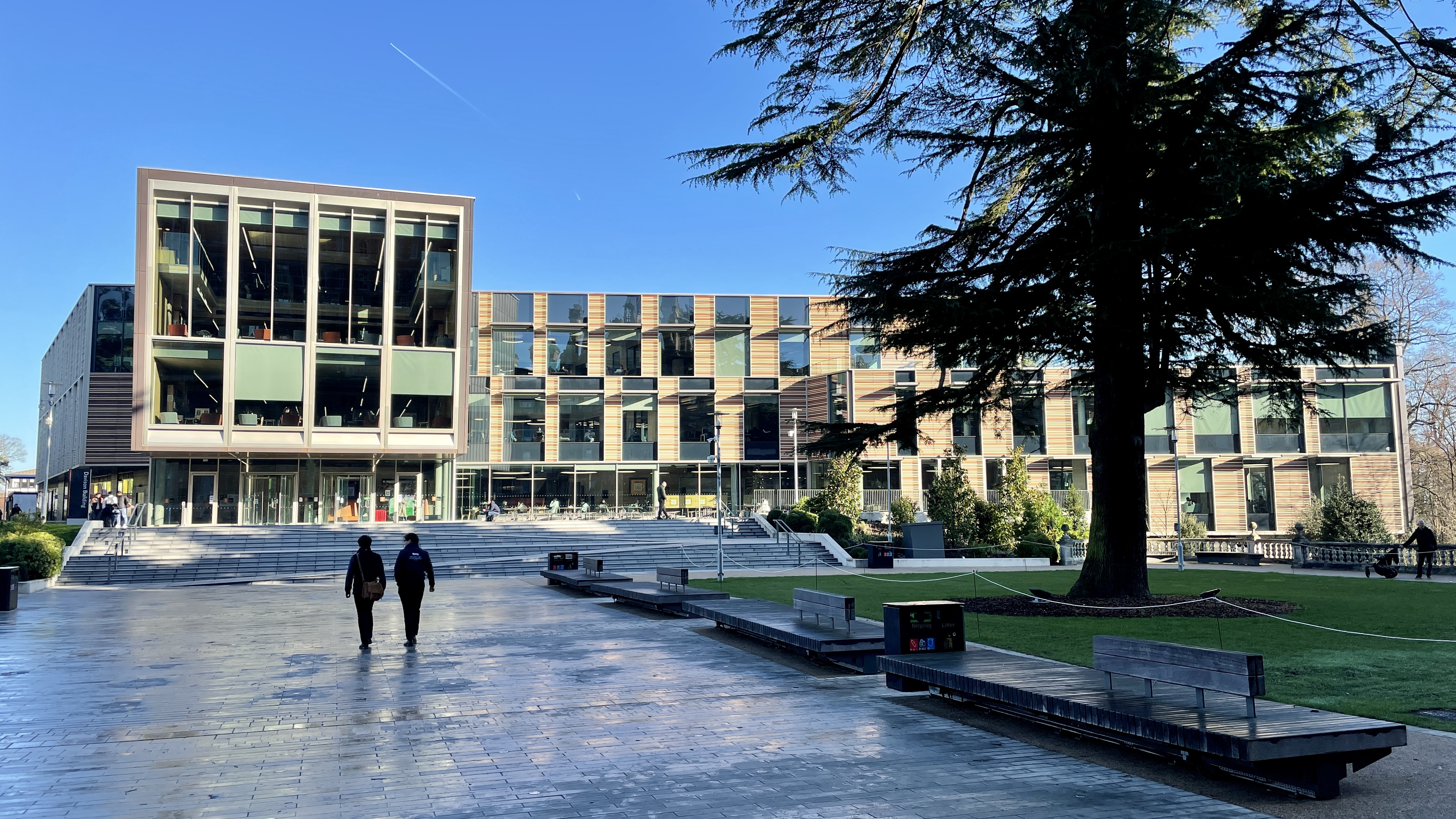Fossils of extinct species, including mammoth, rhinoceros and wolf, have been discovered in a Devon cave by a team of archaeologists, including an academic from Royal Holloway, University of London.

A fossil woolly rhino jaw and teeth, immediately after it was excavated. Photo credit: Professor Danielle Schreve
Excavations at Sherford, a new town in Plymouth, uncovered the approximate 30-60,000-year-old fossils, belonging to woolly mammoths, woolly rhinoceros, hyena, horse, reindeer, mountain hare and red fox, giving an incredibly rare insight into Britain during the last Ice Age.
Speaking about the discovery, Professor Danielle Schreve, Head of the Department of Geography and a member of the Centre for Quaternary Research at Royal Holloway, said: “To find a previously unknown cave system is a really special discovery. The fossil bones and teeth not only allow us to reconstruct what conditions were like in the past – a cool, open grassland patrolled by huge herds of grazing animals and across which Neanderthals and then modern humans hunted – but knowledge of how species responded to rapid climate change by shifting their range, evolving or going extinct can help us make better conservation decisions today.”
Over recent months, the archaeological team has conducted a detailed analysis of the findings. The work has been led by an expert team including academics from Winchester University and the University of Manchester, Orion Heritage and Exeter-based AC Archaeology, supported by Devon County Council and the South West Science Advisor from Historic England.
Whether all of the fossils uncovered are from a similar time period or existed at different points over a longer time span is under investigation. The remains of megafauna – which are large animals of a geological period that are extinct - as well as a complete skeleton of a wolf, suggest that they probably met an accidental death, falling in through an opening to the ground surface and unable to escape.
It is expected that the full archive of remains will return to Devon, into the care of The Box museum in Plymouth, just a few miles from where they were discovered.
Sherford is a new 5,500-home community under development in Plymouth. The Sherford Consortium – a partnership of Taylor Wimpey and Vistry Partnerships – instigated archaeological work at the start of construction in 2015 and have remained committed to funding an ongoing programme of archaeological investigation ever since. Excavation during infrastructure work led to the discovery of these fossils, in an area near Sherford Quarry.























